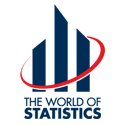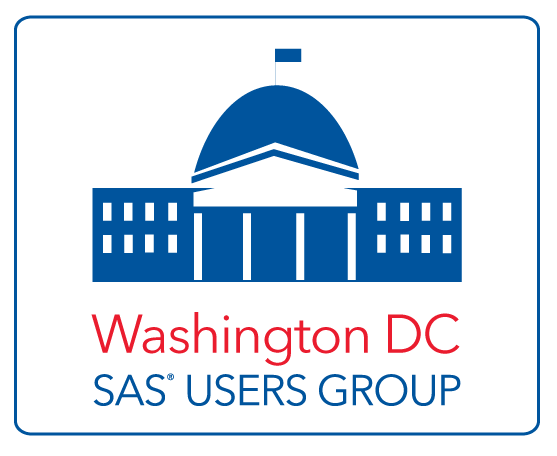December 2006
Contents:
- Holiday Party
- Nominations Sought for 2007 Julius Shiskin Award
- Curtis Jacobs Memorial Prize Competition
- Statistical Consulting Center
- Seminars & Call For Abstracts:
- Education Announcements:
- SIGSTAT Topics for December 2006 - February 2007
- Short Courses (includes JPSM courses)
- Spring 2007 Graduate Statistics Courses:
American University (pdf)
Georgetown University
Bioinformatics & Biomathematics (pdf)
Department of Mathematics (pdf)
George Mason University
George Washington University (pdf)
Johns Hopkins University (pdf)
- Employment Opportunities
- Note From The WSS NEWS Editor
- WSS People
- PDF Versions:
(Requires Adobe Acrobat Reader)
Newsletter
Area Meetings and Courses
Holiday Party
The Holiday Party will be held at Gordon Biersch which is located at 900 F Street, NW, Washington, DC on December 13, 2006 at 6:00 p.m. See the flyer (pdf) for more details.
Return to topNominations Sought for 2007 Julius Shiskin Award
Nominations are invited for the annual Julius Shiskin Memorial Award for Economic Statistics. The Award is given in recognition of unusually original and important contributions in the development of economic statistics or in the use of statistics in interpreting the economy. Contributions are recognized for statistical research, development of statistical tools, application of information technology techniques, use of economic statistical programs, management of statistical programs, or developing public understanding of measurement issues. The Award was established in 1980 by the Washington Statistical Society (WSS) and is now cosponsored by the WSS, the National Association for Business Economics, and the Business and Economics Statistics Section of the American Statistical Association (ASA). The 2006 award recipient was J. Steven (Steve) Landefeld, Director of the Bureau of Economic Analysis, for his leadership in improving the U.S. economic accounts and related statistics through effective management, collaboration with domestic and international users, and scholarly research.
Because the program was initiated many years ago, it is little wonder that statisticians and economists often ask, "Who was Julius Shiskin?" At the time of his death in 1978, "Julie" was the Commissioner of the Bureau of Labor Statistics (BLS) and earlier served as the Chief Statistician at the Office of Management and Budget (OMB), and the Chief Economic Statistician and Assistant Director of the Census Bureau. Throughout his career, he was known as an innovator. At Census he was instrumental in developing an electronic computer method for seasonal adjustment. In 1961, he published Signals of Recession and Recovery, which laid the groundwork for the calculation of monthly economic indicators, and he developed the monthly Census report Business Conditions Digest to disseminate them to the public. In 1969, he was appointed Chief Statistician at OMB where he developed the policies and procedures that govern the release of key economic indicators (Statistical Policy Directive Number 3), and originated a Social Indicators report. In 1973, he was selected to head BLS where he was instrumental in preserving the integrity and independence of the BLS labor force data and directed the most comprehensive revision in the history of the Consumer Price Index (CPI), which included a new CPI for all urban consumers.
Nominations for the 2007 award are now being accepted. Individuals or groups in the public or private sector from any country can be nominated. The award will be presented with an honorarium of $750 plus additional recognition from the sponsors. A nomination form and a list of all previous recipients are available on the ASA Website at www.amstat.org/sections/bus_econ/shiskin.html or by writing to the Julius Shiskin Award Committee, Attn: Monica Clark, American Statistical Association, 732 North Washington Street, Alexandria, VA 22314-1943.
Completed nominations must be received by April 1, 2007. For further information contact Steven Paben, Julius Shiskin Award Committee Secretary, at paben.steven@bls.gov.
Return to topStatistical Consulting Center
Professor Clifton Sutton, Director
The Department of Statistics, George Mason University, Fairfax, is pleased to announce that a new fee-for-service Statistical Consulting Center has been established to provide state-of-the-art consultation on statistical problems for the local community. The consulting staff consists of tenured faculty members in the Department and advanced graduate research assistants. A brief initial consultation is provided free of charge.
Types of services:- Experimental design
- Data processing
- Statistical analysis
- Proposal preparation
- Presentation of results
- Non-standard statistical problems
Contact:
Clifton Sutton, Ph.D.
Associate Professor of Statistics
Director, Statistical Consulting Center
Science and Technology Building II, Room 148
csutton@gmu.edu
703-993-1684
Quantitative Methods in Defense and National Security
George Mason University
February 7-8, 2007
Abstract Submissions Due: November 15, 2006
Website: http://www.galaxy.gmu.edu/QMDNS2007/
The second annual Quantitative Methods in Defense and National Security conference (QMDNS-07) will be held at George Mason University at the Fairfax Virginia Campus. The goal of the conference is to promote collaboration between those with quantitative national security problems (e.g., defense and homeland security practitioners) and those who solve quantitative problems (e.g., statisticians, mathematicians, operations researchers, engineers, and others).
In many aspects, the problems in defense and national security that we must address today are different from those of the past. In part, this is due to our having a more sophisticated understanding of the circumstances under which a national problem should be classified as a defense or security problem. For example, there is a need for effective measures to counter the consequences of asymmetric warfare and terrorism in whatever form they may take and affect our civilian or military populations. (It should be noted that there could be instances in which the distinctions between those populations are, for practical purposes, irrelevant.)
In addition, those who would perpetrate such threats have greater access than ever before to rapid communications and information via the internet on, for example, public health, economic and border-access data and resources, which could enable them to enhance the effectiveness of their efforts. This conference strives to promote collaboration and networking by focusing on challenges, data, and solutions in the defense and national security arenas.
The conference program will consist of invited sessions, contributed talks, and contributed posters. Contributed talks and posters will be refereed based on extended abstracts. We are looking for contributed talks and posters that
- Describe quantitative methods from Operations Research, Statistics, Probability, Machine Learning, and others that can be used to solve problems in defense and national security.
- Describe problems in defense and national security that researchers can address.
Please go to the conference website (http://www.galaxy.gmu.edu/QMDNS2007/) for information on abstract submission and other details. The last day to submit abstracts for the contributed program is November 15, 2006. Please contact Jeffrey Solka (jeffrey.solka@navy.mil) if you have questions.
Return to top
Eleventh Biennial CDC & ATSDR Symposium on Statistical Methods
April 17-18, 2007
Call For Abstracts
Statisticians,social and behavioral scientists, epidemiologists, economists, policy analysts, and others are invited to participate in the Eleventh Biennial Symposium on Statistical Methods, sponsored by the Centers for Disease Control and Prevention & Agency for Toxic Substances and Disease Registry (CDC & ATSDR), the American Statistical Association (ASA) and the Biostatistics Department at Emory University Rollins School of Public Health. The Symposium will be held in Atlanta, GA. The theme for the 2007 Symposium is "Analyzing and Mapping Health Inequities to Impact Policies for Eliminating Disparities." Two short courses (Bayesian Small Area Estimation and Statistical Analysis Using GIS Data Measuring Disparities) will be offered on April 16, 2007 in conjunction with the Symposium.
Authors are encouraged to submit abstracts for contributed papers related to one of the following session topics:
- Racial and ethnic minorities
- Statistical and cost methodologies, including systematic reviews
- At risk populations with characteristics related to age, low income, sexual orientation, language barriers, disability and geographic locations
- Underrepresented or "invisible" populations: institutionalized populations, the homeless, immigrants, and others
- Disparities in occupational employment
- Environmental justice: cancer clusters, location of brownfields, hazardous facilities and socioeconomic class
- Access to and quality of care
- Emergency and program planning
- Health behavior and promotion
Abstracts will be considered for either oral or poster presentation and must be submitted no later than November 20, 2006. Authors of accepted presentation will be notified by January 5, 2007. For more information, please visit the Symposium website at http://www.cdc.gov/ods/ads/sag/index.htm or contact:
Mark Stevens
Centers for Disease Control and Prevention
4770 Buford Hwy NE (MS K-10)
Atlanta, GA 30341-3717
(770) 488 5673
MStevens@cdc.gov
Spring Courses 2007
Department of Statistics, George Mason University
The Department of Statistics, George Mason University (website http://statistics.gmu.edu) is accepting applications for its masters and doctoral programs for Fall 2007. The Department also announces the following graduate course offerings in Spring 2007:
- STAT 544 W 7:20-10:00 p.m. Prof Habib Applied Probability Prereq: STAT 344
- STAT 554 M 4:30-7:10 p.m. Prof. Sutton Applied Statistics
Prereq: STAT 344 - STAT 652 T 7:20-10:00 p.m. Prof. Diao Statistical Inference
Prereq: STAT 544 - STAT 657 W 4:30-7:10 p.m. Prof. Davis Nonparametric Statistics
Prereq: STAT 554 - STAT 660 Th 4:30-7:10 p.m. Prof. Diao Biostatistical Methods
Prereq: STAT 535 or 554 - STAT 662 Th 7:20-10:00 p.m. Prof. Miller Multivariate Statistical Methods
Prereq: STAT 554 - STAT 758 W 7:20-10:00 p.m. Prof. Bell Advanced Time Series Analysis
Prereq: STAT 658 - IT 875 W 4:30-7:20 p.m. Prof. Carr Scientific and Statistical Visualization
Prereq: STAT 654
SIGSTAT Topics for December 2006 - February 2007
December 20, 2006: Using SAS PROC MIXED to Fit Individual Growth Models
This talk will follow the paper, "Using SAS PROC MIXED to Fit Multilevel Models, Hierarchical Models, and Individual Growth Models" by Judith Singer (1998) which can be downloaded from her website, http://gseweb.harvard.edu/~faculty/singer/.
In the December meeting we'll use an individual growth model designed for exploring longitudinal data (on individuals) over time. Charlie Hallahan will be the speaker.
January 17, 2007: SAS/LE (SAS Learning Edition 4.1)
The SAS Learning Edition is an inexpensive ($199.00) and easy-to-use (comes with the Enterprise Guide menu-based interface) version of SAS with an impressive array of features from SAS Base 9,1,3, SAS/STAT, SAS/GRAPH, SAS/QC, SAS/ETS and SAS Enterprise Guide 4.1. For statisticians, some of the included PROCS are MIXED, GENMOD, ARIMA, GLM, REG, LOGISTIC, and PHREG. See http://support.sas.com/training/le/ for more information.
SAS/LE will read datasets of any size, but will only process the first 1,500 observations. There is no limitation on the number of variables. Charlie Hallahan will be the speaker.
February 21, 2007: Demo of SPSS Complex Samples
SPSS Complex Samples, an add-on module for SPSS for Windows , provides the specialized planning tools and statistics you need when working with sample survey data. It enables you to make more statistically valid inferences for a population by incorporating the sample design into survey analysis. You can more accurately work with numerical and categorical outcomes in complex sample designs using two new algorithms for analysis and prediction. This presentation will demo the software and analysis wizards using tutorials and sample data sets provided with the module.
See http://www.spss.com/complex_samples/ for more information. Linda Atkinson will be the speaker.
SIGSTAT is the Special Interest Group in Statistics for the CPCUG, the Capital PC User Group, and WINFORMS, the Washington Institute for Operations Research Service and Management Science.
All meetings are in Room S3031, 1800 M St, NW from 12:00 to 1:00 (note new time). Enter the South Tower & take the elevator to the 3rd floor to check in at the guard's desk.
First-time attendees should contact Charlie Hallahan, 202-694-5051, hallahan@ers.usda.gov and leave their name. Directions to the building and many links of statistical interest can be found at the SIGSTAT website, www.cpcug.org/user/sigstat/
Return to topNote From The WSS NEWS Editor
Items for publication in the February issue of the WSS NEWS should be submitted no later than December 26, 2006. E-mail items to Michael Feil at michael.feil@usda.gov.
Return to topClick here to see the WSS Board Listing (pdf)
Return to top






